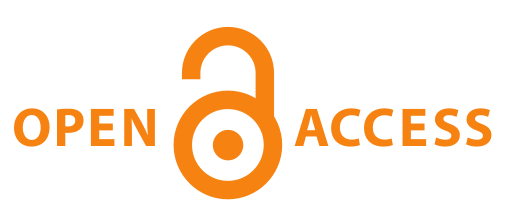Editorial ethics
PUBLISHING ETHICS OF THE “GOLDEN HORDE REVIEW”
Ethical code of the “Golden Horde Review”
All the submitted papers are peer-reviewed considering the originality, research content and ethical matters.
The compliance with the ethical standards is of great significance for the all parties: authors, editors, reviewers, publishers.
The obligations of the editorial board
- The editorial board of the “Golden Horde Review” is responsible for the scientific contents of the journal. This decision is based on the peer-reviews of the manuscripts.
- The editorial board follows the publication code of the journal and the copyright legal issues. The editor-in-chief may consult with other members of the editorial board during the decision-making process.
Confidentiality
- The members of the editorial office and reviewers are prohibited from disclaiming any information about the submitted paper and its content due to confidentiality (except the authors of the article, peer-reviewers, editorial members and publisher).
- Non-published materials can not be used by the editorial office or the reviewers for a private use or for a transmission to a third party without a written author’s permission.
The obligations of the peer-reviewers
The peer-reviewers support the scientific editor in decision-making and support the author in improving the paper.
- The papers submitted to the editorial office are considered confidential matters. The submitted papers must not be disclosed to any third parties, except those confirmed by the editorial office.
- The papers published or to be published in other journals are not accepted. The description of any methods, scientific facts or discussions must be supported by the correct reference. The peer-reviewers are obliged to inform the editorial office about any plagiarism detected in the paper.
- Peer-reviewers should identify non-referenced research work. Each earlier reported evidence should be accompanied by a reference. Peer-reviewer is obliged to report any plagiarism, multiple, excessive and competitive publications or double publications.
- Any private information or ideas discussed during the peer-review are confidential and are matters of non-disclosure. The peer-reviewer is prohibited of reviewing the paper in case of any conflict of interest with any of the authors, industry or any other organizations related to the current paper.
The obligations of the authors
- The authors are obliged to guarantee the originality of the paper. Any data from the other papers or research works must be noted and referred to.
- The authors are obliged to present the data related to the current paper if possible. The authors must store the data related to the current paper as long as possible after the publication.
- Authors are prohibited from publishing the same papers or the papers describing the same data in multiple journals. The submission of the same paper to multiple journals is unethical and unacceptable.
- The authors are obliged to refer to the research papers they used during the preparation of the paper. Authors should quote publications that were important in creating the submitted paper.
- The authorship of the paper must be limited to the persons who made a significant input into the concept, project, creation or interpretation of the data. Any other persons who made an input into some parts of the paper can be acknowledged.
- The authors are obliged to guarantee that the list of the authors only contains people who made a significant input into the paper, and also that all the co-authors reviewed the paper, confirmed its final version and agreed to the publication.
- All the authors and co-authors are obliged to disclose any financial or other conflict of interests, which may interfere with the results of the investigation.
- Authors are obliged to immediately address the editorial office in case of the detection of any errors or inaccuracies in the published paper.
The Publishing Ethics of the journal “Golden Horde Review” is prepared based on the materials of the International Committee on Publication Ethics (COPE).






















 The content is available under the license
The content is available under the license 
